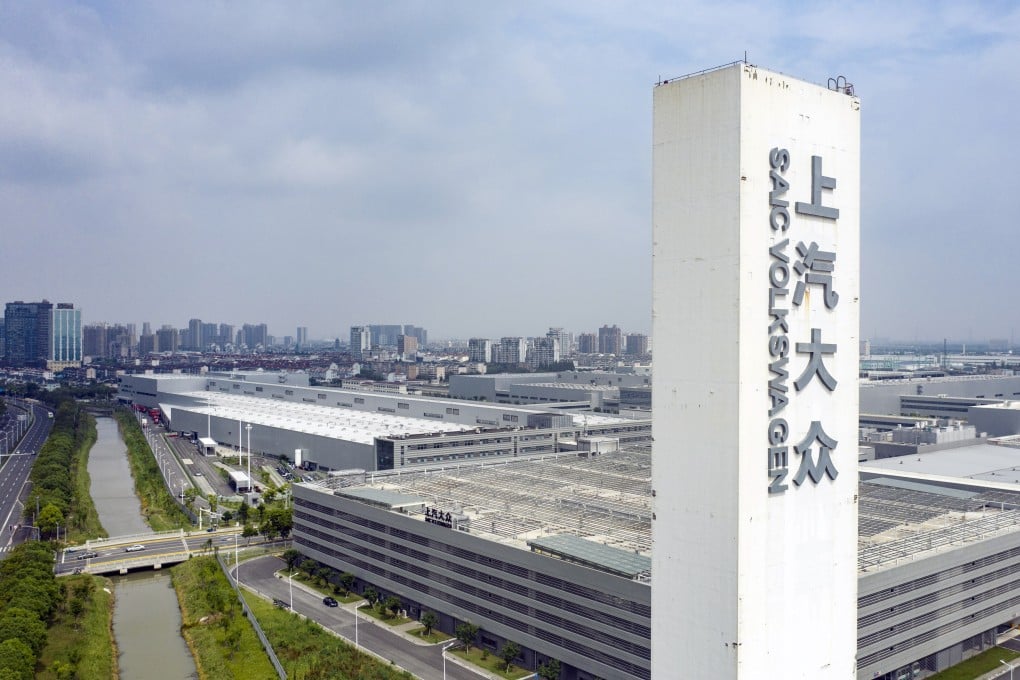China’s largest carmaker sees NEV deliveries almost double in June as supply chain woes ease
- The sales number was also a 27.4 per cent jump from May when SAIC fought to restore supply chains amid lockdowns
- Analysts said SAIC’s strong deliveries in June showed consumer demand for battery-powered vehicles remains strong on the mainland

SAIC Motor, China’s largest carmaker, saw its new-energy vehicle (NEV) deliveries nearly double in June from a year earlier, as it stepped up a gear to increase output following a two-month citywide lockdown in Shanghai.
The state-owned company, which is a partner of General Motors and Volkswagen, said its NEV segment powered ahead of rivals with deliveries of 91,297 units last month, compared to 49,030 vehicles in the same period in 2021.
The sales number was also a 27.4 per cent jump from May when SAIC fought to restore supply chains to get production back up to full capacity amid lockdowns.
“Cash subsidies played a role in bolstering local NEV sales,” said Tian Maowei, a sales manager at Yiyou Auto Service in Shanghai. “Major carmakers in Shanghai and its neighbouring regions are set to quicken production and increase sales in the second half after emerging out of the Covid-19 pandemic.”
Analysts said SAIC’s strong deliveries number in June showed consumer demand for battery-powered vehicles remains strong on the mainland, the world’s largest electric vehicle (EV) market.
NEV comprises pure electric, plug-in hybrids and hydrogen fuel cell cars.